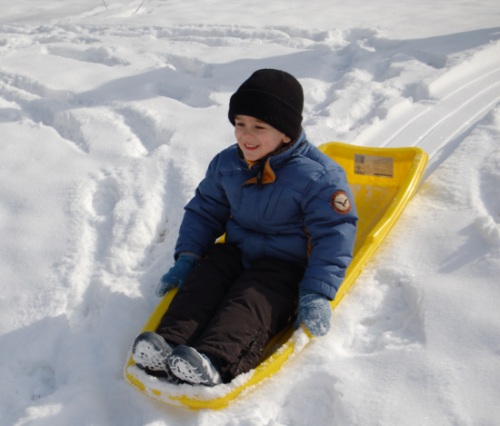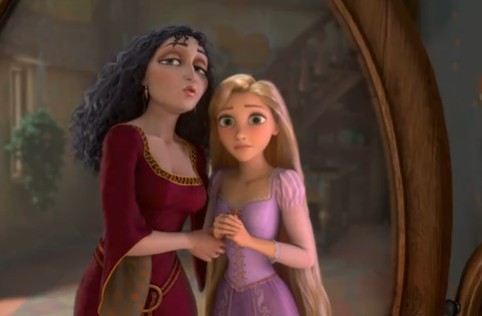Oh boy. We’re back to talking about death, and the conversations are getting more difficult and emotionally fraught. I still don’t think Simon really understands it, but he now understands it enough to be afraid and upset by the notion that we all die.
Thursday night, just before I turned out the light, Simon asked about Percy and Tristan again:
“Are they going to come back?” he asked.
“No,” I explained. “When you die, you can’t come back.”
“Oh. What did they look like when they died?”
“Well, they kind of looked like they were asleep. The doctor made sure nothing hurt, I was with them, and one minute their bodies just stopped working.”
“Did they lay their heads down? And close their eyes?”
“Yes.”
This last part was a lie. Percy’s eyes closed because he had a sedative first. In fact, when the vet came back after administering it, I could see his third eyelid before his eyes closed altogether. I didn’t like it. I wasn’t with him when he got the sedative, and by the time we were together again, I couldn’t be sure he knew it or that he hadn’t been scared earlier. And when Tristan died, with a single drug, it was difficult to tell when the moment came precisely because he kept his eyes open the entire time. But, you know, Simon doesn’t need to know all these details, especially when the deaths he is most familiar with are those of Darth Vader and Yoda.
That night, Simon awoke eight times between midnight and 7:00 a.m. He doesn’t get out of bed when this happens; he cries and/or calls out “help me!” until Matt or I go to him. On at least one of Matt’s trips, Simon told him that he was worried I would die.
Friday night, sometime between Where the Wild Things Are and In the Night Kitchen, Simon brought up death again, asking many of the same questions. When would Cambria die? I tried to change the subject, lest we all have another grisly night of non-sleeping. He slept like the dead (awful pun intended), but the subject wasn’t closed.
“Mommy,” came one of his first questions Saturday morning, “am I going to die?”
“Oh, honey, remember, you are young. You won’t die for a long, long, time. Most people are very old when they die.”
“But I will die?”
“Yes, honey, everyone dies at some point, just like everyone is born. It’s part of life. But it’s not anything you need to worry about now, I promise.”
And then, for the first time since we started having these discussions, a look of total understanding and terror flashed across his face. He began to shake and sob, managing to yell out “I don’t want to get old and die” between the tears.
Oh brother. What’s a parent to do? I hugged him. I reassured him that getting old was a long way off. We went over numbers: “You are 4; Ben is 8; Mommy is 41 (“That’s a lot of numbers, he told me last week on my birthday.”); Bubbie is 71; and when Uncle Dave died, he was 100. There are a lot of numbers between you and being old. You won’t even finish growing for 15 more years!”
The topic continued to come up all day Saturday. He had another breakdown when sitting on the potty of all places. How do you comfort a simultaneously crying and pooping child, anyway? The second most heart-breaking thing I heard all day was:
“Mommy, if you die while I’m at school, Daddy will have to come pick me up.”
I had to appreciate the contingency planning manifest in that one. That led into a discussion about how I’m a grown-up who takes care of myself and I still have my mommy, and that by the time I’m old enough to die, he will be a grown-up who doesn’t need me to take care of him, either.
Two things make these conversations particularly awful: First, the fact that you have to qualify everything comforting you might say with “probably” and “usually.” Simon is smart enough to understand that if I say “Parents don’t usually die before their kids are grown up,” that what I’m leaving left unsaid is that some parents do. And the second complication is that none of my references discuss these types of fears and questions in preschoolers; the questions I’m getting and behavior I’m seeing are straight from the K-6 playbook.
A quick call to my oldest brother, married to a shrink and the father of three, confirmed that they didn’t deal with this until their kids were “six or seven, maybe even eight.” That means that all of their suggested books and advice is geared towards kids two to four years older than Simon. I can borrow and listen, but I’m on my own when it comes to adapting anything they offer. So, again, I’m flying solo here.
I have another, possibly crazy idea as well. I don’t think I can or should tell Simon to not talk about this. But I’m wondering if on days like Saturday, when the subject came up every hour or so, I can try to at least have him cut back. Were he talking about, say, getting a new light saber, I’d treat it as an instance of negative persistence and say something like, “Honey, we’ve already talked that about several times today. You are getting stuck. Let’s talk about [insert something else we could do or play with] now.”
I wonder. Can I say, “Honey, you can ask me any question, and I will always answer it. But we’ve already talked about this a lot today. Why don’t we talk about fun things we can do, or how you played with Baron yesterday, or what you want to do with Grandma and Bubbie next week.”
Is it foolhardy to attempt amateur cognitive behavioral therapy on a 4-year-old? I’m about to find out.

